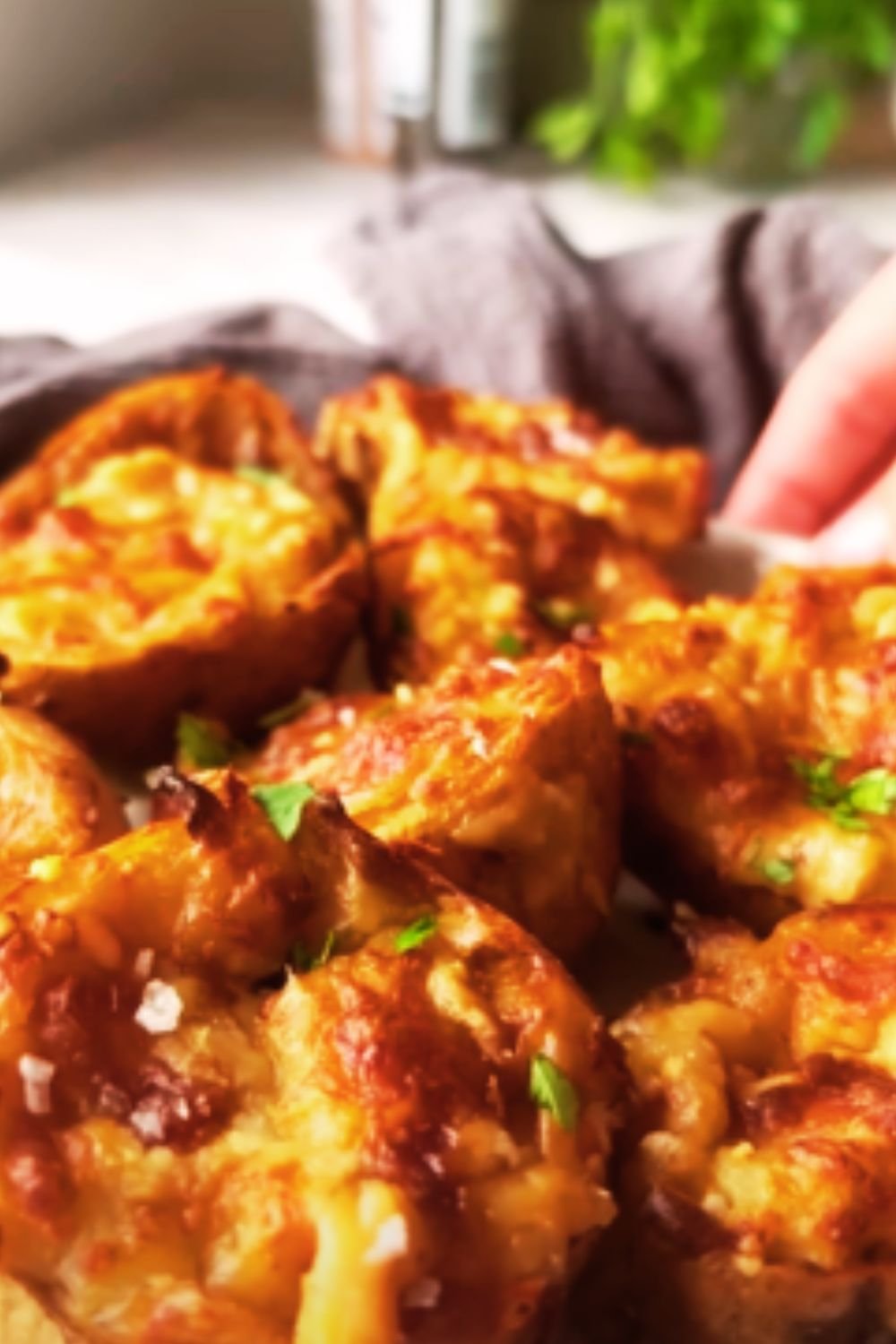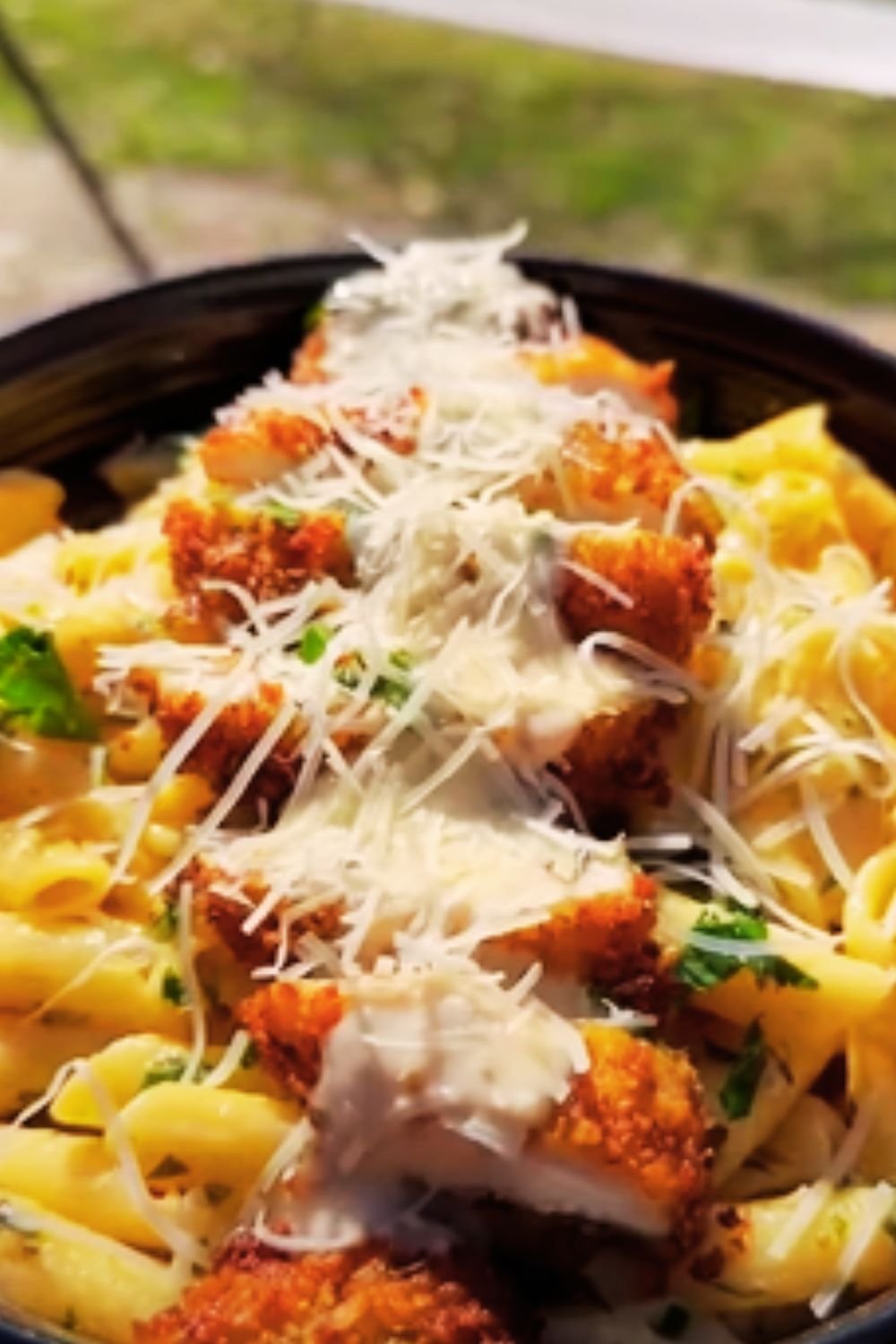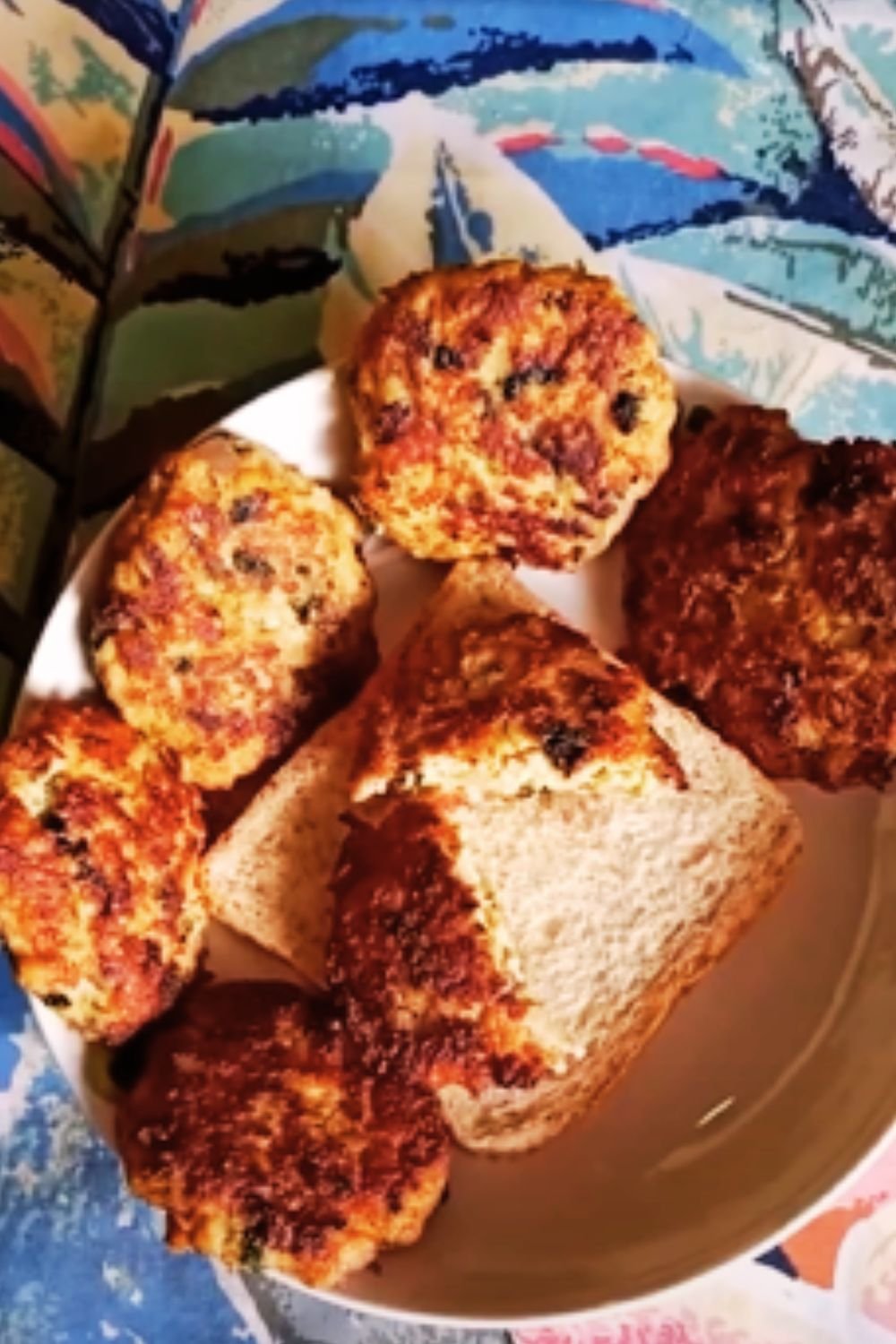There’s something magical about the marriage of two comfort food classics. As someone who’s spent countless hours perfecting both French onion soup and loaded baked potatoes in my home kitchen, I can tell you that combining these two beloved dishes creates something truly extraordinary. The first time I served these French Onion Baked Potatoes at a family gathering, conversation literally stopped as everyone took their first bite. That’s when I knew I had created something special that I needed to share.
These stuffed potatoes take the sweet, savory depth of caramelized onions and rich beef broth from French onion soup and transport those flavors into fluffy baked potato vessels. Topped with melted Gruyère cheese and fresh thyme, they deliver all the satisfaction of French onion soup but in a hearty, substantial form that works as a show-stopping side dish or impressive main course.
What Makes These French Onion Baked Potatoes Special
When I first experimented with this recipe, I was looking for something that would satisfy my craving for French onion soup but provide something more substantial for dinner. The result exceeded my expectations, and I’ve been refining the technique ever since.
These aren’t just any stuffed potatoes. The caramelized onions are slowly cooked to develop their natural sweetness, then deglazed with beef broth and a splash of balsamic vinegar to create that unmistakable French onion flavor. The potato flesh is whipped with butter and a touch of sour cream before being loaded back into the skins, creating the perfect foundation for the onion mixture and blanket of bubbly cheese.
Ingredients You’ll Need
For the perfect French Onion Baked Potatoes, quality ingredients make all the difference:
| Ingredient | Amount | Notes |
|---|---|---|
| Russet potatoes | 4 large (about 10-12 oz each) | Choose potatoes of similar size for even cooking |
| Yellow onions | 2 large (about 1½ pounds) | Sweet onions like Vidalia work beautifully too |
| Unsalted butter | 6 tablespoons, divided | 2 tbsp for onions, 4 tbsp for potato filling |
| Olive oil | 1 tablespoon | Helps prevent butter from burning during onion caramelization |
| Beef broth | ½ cup | Low-sodium preferred for better flavor control |
| Fresh thyme | 2 teaspoons, plus extra for garnish | Fresh makes a difference, but dried works in a pinch (use ¾ tsp) |
| Garlic | 3 cloves, minced | Adds depth to the onion mixture |
| Balsamic vinegar | 1 tablespoon | The secret ingredient that brightens everything |
| Sour cream | ¼ cup | Creates a creamy potato base |
| Gruyère cheese | 1½ cups, shredded | Traditional choice, but Swiss makes a good substitute |
| Salt and pepper | To taste | Be generous with the black pepper |
| Worcestershire sauce | 2 teaspoons | Adds umami depth |
| Dijon mustard | 1 teaspoon | Optional but recommended for complexity |
Equipment Needed
Before diving into this recipe, make sure you have:
- Baking sheet
- Fork (for piercing potatoes)
- Large skillet (preferably cast iron)
- Mixing bowls
- Potato masher or fork
- Sharp knife
- Cutting board
- Measuring cups and spoons
- Wooden spoon or silicone spatula
- Cheese grater (if not using pre-shredded cheese)
Step-by-Step Instructions
Preparing the Potatoes
- Preheat your oven to 400°F (200°C).
- Wash the potatoes thoroughly and pat them dry.
- Using a fork, pierce each potato several times to allow steam to escape during baking.
- Rub the potatoes lightly with olive oil and sprinkle with kosher salt.
- Place the potatoes directly on the oven rack (with a baking sheet on the rack below to catch any drips).
- Bake for 45-60 minutes, or until the potatoes are easily pierced with a fork and the skin is crispy.
Pro tip: For extra crispy skins, brush the potatoes with a mixture of olive oil and flaky sea salt before baking.
Caramelizing the Onions
While the potatoes are baking, it’s time to create that signature French onion flavor:
- Slice the onions thinly (about ⅛-inch thick). I prefer to slice pole to pole rather than across the equator for better texture when caramelizing.
- Heat 2 tablespoons of butter and 1 tablespoon of olive oil in a large skillet over medium-low heat.
- Add the sliced onions to the skillet and toss to coat with the butter and oil.
- Season with ½ teaspoon salt and ¼ teaspoon pepper.
- Cook the onions slowly, stirring occasionally, for about 35-40 minutes until they reach a deep golden brown color. Patience is key here—rushing this step will rob you of the sweet, complex flavor that makes this dish special.
- Add the minced garlic and fresh thyme, cooking for another 1-2 minutes until fragrant.
- Pour in the beef broth, balsamic vinegar, and Worcestershire sauce, scraping up any browned bits from the bottom of the pan.
- Simmer for 5-7 minutes until most of the liquid has evaporated but the onions remain moist and glossy.
- Taste and adjust seasoning if necessary.
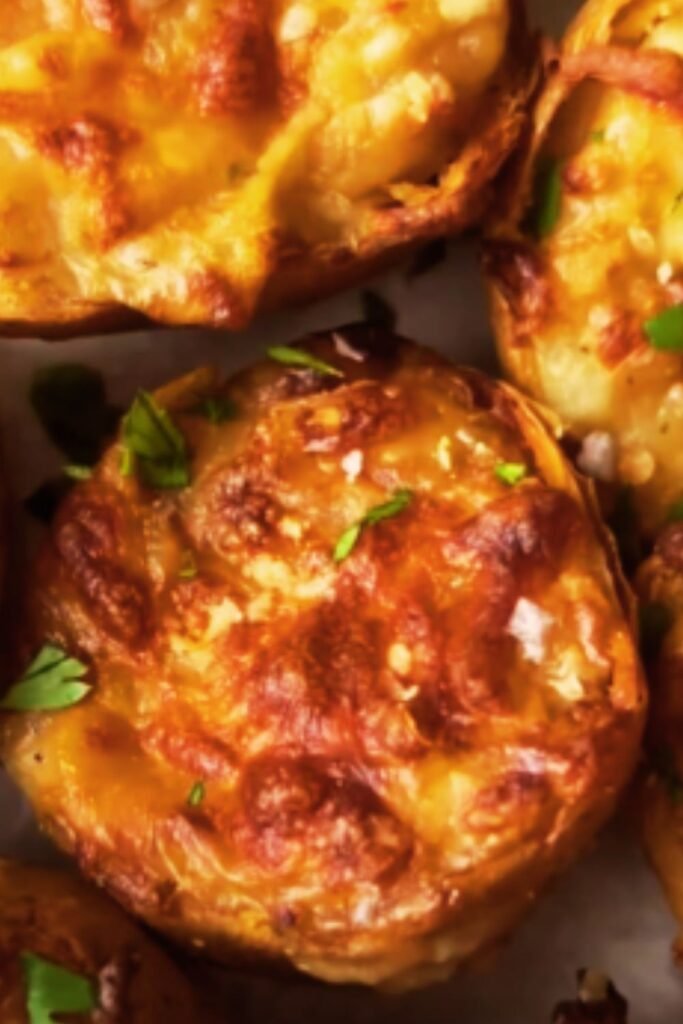
Assembling the French Onion Baked Potatoes
Once the potatoes are done baking:
- Remove the potatoes from the oven and let them cool just enough to handle safely.
- Cut the top third of each potato lengthwise and scoop out the flesh, leaving about ¼-inch of potato attached to the skin to maintain structure.
- Place the scooped potato flesh into a mixing bowl.
- Add 4 tablespoons of butter, sour cream, Dijon mustard (if using), ½ teaspoon salt, and ¼ teaspoon pepper to the potato flesh.
- Mash until smooth and well combined, but don’t overmix or the potatoes can become gluey.
- Stir in ¼ cup of the shredded Gruyère cheese.
- Spoon the potato mixture back into the potato skins, creating a slight well in the center of each for the onion mixture.
- Divide the caramelized onion mixture evenly among the potatoes, gently pressing into the well.
- Top each potato generously with the remaining Gruyère cheese.
The Final Bake
- Increase the oven temperature to 425°F (220°C).
- Place the stuffed potatoes on a baking sheet.
- Bake for 15-20 minutes, or until the cheese is melted, bubbly, and beginning to brown.
- For an extra golden top, broil for the last 1-2 minutes, watching carefully to prevent burning.
- Remove from the oven and let rest for 5 minutes.
- Garnish with additional fresh thyme leaves before serving.

Nutritional Information
For those keeping track of their intake, here’s what you can expect from one French Onion Baked Potato:
| Nutrient | Amount per Serving |
|---|---|
| Calories | 485 |
| Total Fat | 26g |
| Saturated Fat | 15g |
| Cholesterol | 70mg |
| Sodium | 620mg |
| Total Carbohydrates | 48g |
| Dietary Fiber | 5g |
| Sugars | 8g |
| Protein | 16g |
| Vitamin A | 15% DV |
| Vitamin C | 45% DV |
| Calcium | 35% DV |
| Iron | 10% DV |
Values are approximate and may vary based on specific ingredients used.
Variations to Try
The basic recipe is divine, but here are some variations I’ve tried that you might enjoy:
Vegetarian Version
Replace the beef broth with vegetable broth and add a teaspoon of miso paste for depth. The umami flavors will ensure you don’t miss the beef.
Mushroom Addition
Add 8 ounces of sliced mushrooms (cremini or portobello work best) to the onions when they’re about halfway through caramelizing. The earthiness of the mushrooms complements the sweet onions beautifully.
Blue Cheese Twist
Replace half of the Gruyère with crumbled blue cheese for a more pungent flavor profile that stands up wonderfully to the sweet onions.
Bacon Lover’s Version
Add 4 slices of crispy, crumbled bacon to the potato filling before stuffing the skins. The smoky flavor works wonderfully with the other elements.
Mini Appetizer Version
Use small baby potatoes and follow the same process for adorable, one-bite appetizers that will disappear from your party tray in minutes.
Make-Ahead Tips
I often prepare components of this dish in advance when entertaining:
- The potatoes can be baked up to 2 days ahead. Simply reheat at 350°F for about 15-20 minutes before scooping and filling.
- Caramelized onions can be prepared up to 3 days in advance and refrigerated in an airtight container.
- The entire dish can be assembled up to 24 hours before the final bake. Store covered in the refrigerator and add an extra 5-10 minutes to the final baking time.
Storage and Reheating
If you’re lucky enough to have leftovers:
- Store in an airtight container in the refrigerator for up to 3 days.
- Reheat in a 350°F oven for 15-20 minutes, or until heated through and the cheese is melted again.
- Microwaving is possible but will make the potato skins soft rather than crispy.
Serving Suggestions
These French Onion Baked Potatoes shine as either a main dish or a side. Here’s how I like to serve them:
As a Main Course
- Pair with a simple green salad dressed with a light vinaigrette to cut through the richness.
- Serve alongside roasted asparagus or green beans for a complete meal.
- Add a simple protein like a rotisserie chicken for extra substance.
As a Side Dish
- These potatoes complement a simple steak or roast beef beautifully.
- They work wonderfully with roasted chicken or pork tenderloin.
- Try them alongside a hearty meatloaf for the ultimate comfort food dinner.
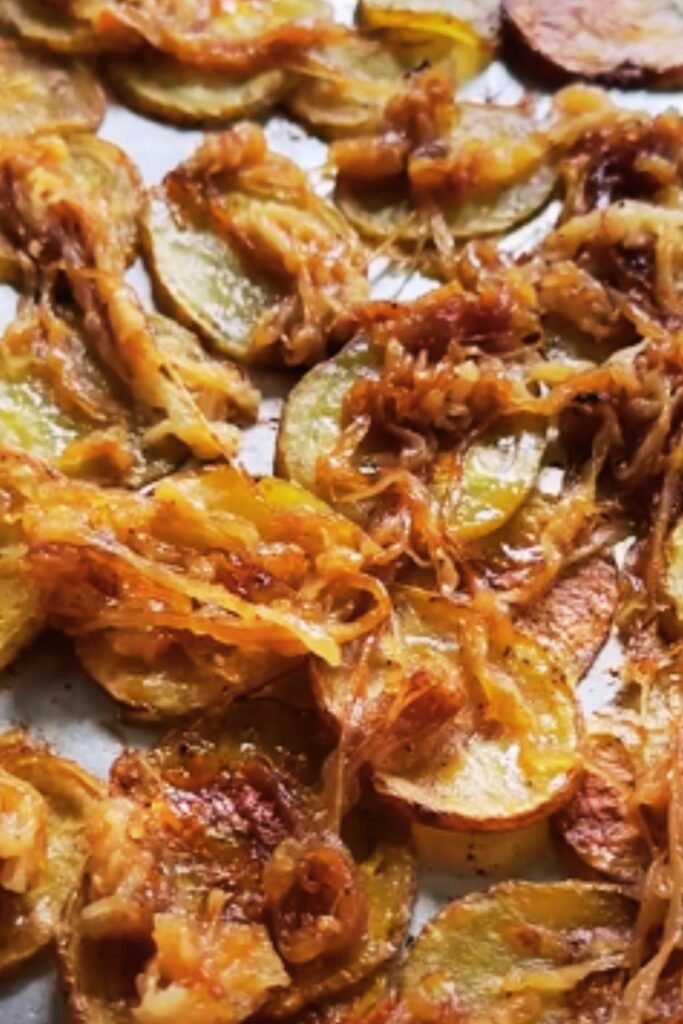
Common Mistakes to Avoid
In my years of perfecting this recipe, I’ve made a few mistakes so you don’t have to:
- Rushing the onions: Properly caramelized onions take time. Cook them low and slow for the best flavor.
- Overworking the potato filling: Mix just until combined to avoid gluey potatoes.
- Under-seasoning: Potatoes need plenty of salt. Taste and adjust as you go.
- Skimping on the cheese: The golden, bubbling Gruyère is what makes these special. Be generous!
- Not allowing for rest time: Let the potatoes rest for a few minutes after the final bake to allow the flavors to settle and prevent burnt mouths.
Why This Recipe Works
The science behind these French Onion Baked Potatoes makes them fool-proof:
- The starchy Russet potatoes provide the perfect blank canvas for the rich flavors.
- The slow caramelization of onions converts their harsh sulfur compounds into sweet, complex flavors through the Maillard reaction.
- The combination of beef broth and balsamic vinegar creates the perfect balance of umami and acidity.
- The potato skins, when baked properly, develop a wonderful textural contrast to the creamy filling.
- Gruyère cheese has the perfect melting properties and nutty flavor that complements the sweet onions.
Frequently Asked Questions
Q: Can I use a different type of potato?
A: While Russets are ideal for their fluffy texture, Yukon Golds can work too. They’ll give you a creamier, less fluffy result. Avoid waxy potatoes like red potatoes, which won’t give you the right texture.
Q: How can I tell when my onions are properly caramelized?
A: Properly caramelized onions should be a deep golden brown color (not black, which means they’re burnt). They should be soft, sweet, and reduced to about 1/4 of their original volume. This typically takes 35-45 minutes of patient cooking.
Q: Can I freeze these potatoes?
A: Yes! Freeze them after assembly but before the final bake. Wrap individually in plastic wrap, then foil. Freeze for up to 3 months. Thaw overnight in the refrigerator before baking (add an extra 10-15 minutes to the baking time).
Q: What can I substitute for Gruyère cheese?
A: Swiss, Emmental, Comté, or a combination of provolone and mozzarella would all work well. Look for a good melting cheese with a nutty flavor.
Q: My onions are browning too quickly. What should I do?
A: Turn down the heat and add a tablespoon of water to the pan. Stir well. This will slow the caramelization process and prevent burning.
Q: Can I make this dish vegetarian?
A: Absolutely! Simply substitute vegetable broth for the beef broth. Adding a teaspoon of miso paste will help maintain that umami depth.
Q: The potato skins are breaking when I scoop out the flesh. What am I doing wrong?
A: Make sure to leave about 1/4-inch of potato attached to the skin, and be gentle when scooping. If the potatoes are too hot, they can be more fragile, so let them cool slightly before handling.
A Final Note
There’s something profoundly satisfying about taking two classic comfort foods and reimagining them into something new yet familiar. These French Onion Baked Potatoes represent the best of both worlds—the rich, deep flavors of a slowly simmered French onion soup combined with the hearty satisfaction of a perfectly baked potato.
I encourage you to take your time with this recipe, especially when caramelizing the onions. That slow transformation is where the magic happens, turning sharp, pungent onions into sweet, complex morsels that make this dish unforgettable.
Whether you’re serving these as an impressive side dish at a dinner party or enjoying them as a cozy meal on a chilly evening, I guarantee they’ll become a recurring favorite in your recipe collection. The combination of crispy potato skin, fluffy filling, sweet onions, and gooey cheese creates a symphony of flavors and textures that’s simply irresistible.
I’d love to hear how these French Onion Baked Potatoes turn out for you. Happy cooking!
